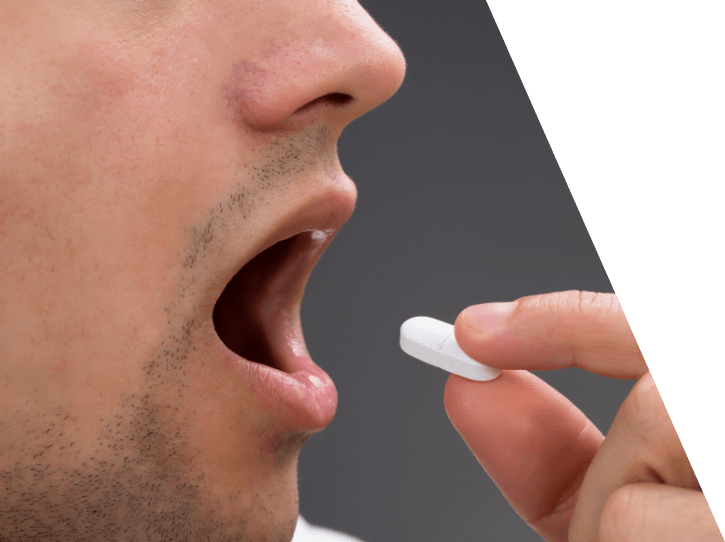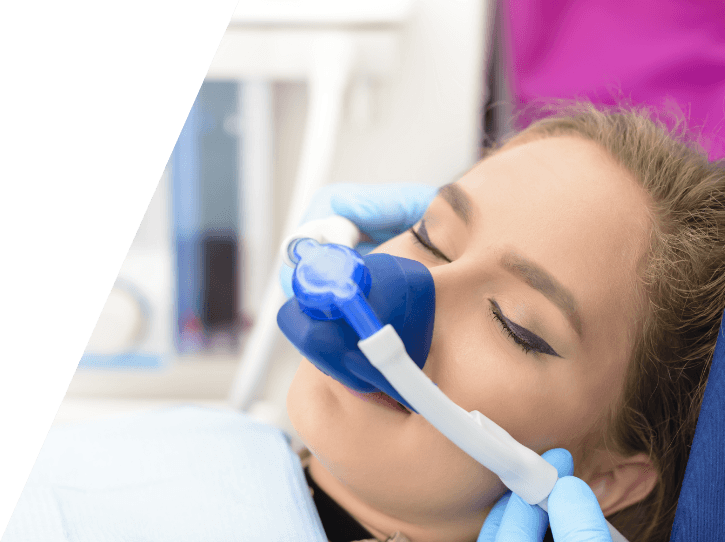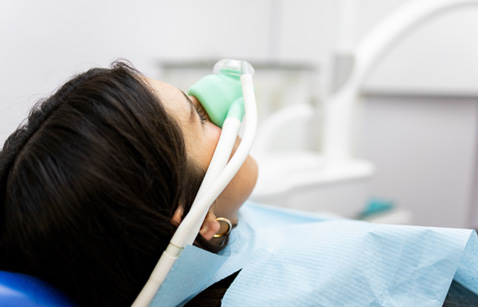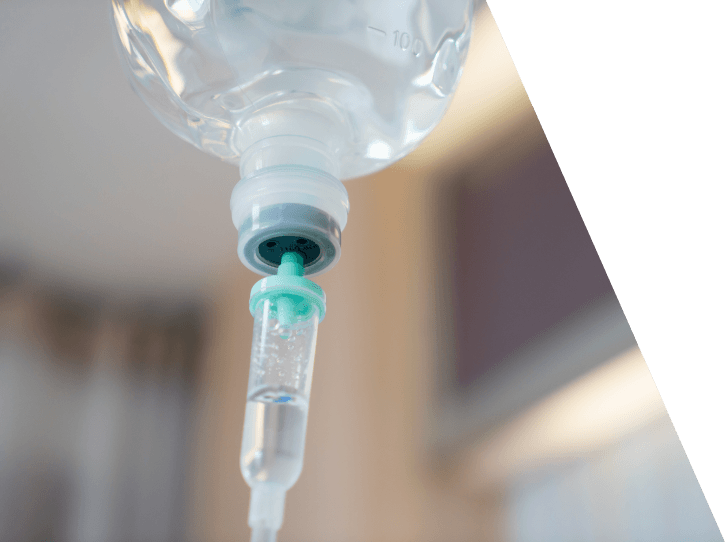Sedation Dentist – Alice, TX
How We Soothe Dental Anxieties
Sedation dentistry refers to the use of sedation during dental treatment. Sedation is most used during extensive procedures, for dentistry patients with dental phobia, or for dentistry patients who find it difficult to sit still. There are different types, including nitrous oxide ("laughing gas"), IV sedation, and oral sedatives.
Sedation can range from the use of nitrous oxide to calm a dental patient to general anesthetics used to put dentistry patients to sleep. Dental patients with dental phobia, low pain tolerance, major dental treatment, physical handicaps, or strong gag reflexes may require sedation dentistry. Procedures like fillings, dental crowns, bridges, root canals, tooth extractions, cosmetic procedures, and periodontal treatments often require some sort of dental sedation.
It is endorsed by the American Dental Association and is an effective way to make many dental patients comfortable during their dental visits. Before using a sedative or anesthetic, it is important to tell our sedation dentist in Alice, TX about any medications or medical treatments you are receiving. Your dentist will talk to you about the process of sedation dentistry and provide any necessary instructions.
Why Choose Advanced Dental Care of South Texas for Sedation Dentistry?
- IV Sedation Available
- Advanced Dental Facility
- Team That Simply Cares
Oral Conscious Sedation Dentistry

If you choose to have oral conscious sedation performed at your next appointment, you’ll be given a small pill to take at a set time beforehand. Once the pill takes effect, you’ll be extremely relaxed, but you won’t be unconscious; you’ll still be able to answer our questions, and we can wake you up easily if you happen to fall asleep. It will take a while for the effects of oral conscious sedation to fully wear off, so make sure there’s someone who can drive you home afterward.
Nitrous Oxide Sedation

Nitrous oxide, more commonly known as “laughing gas,” is a calming solution that can help patients with everything from dental-related anxiety to a sensitive gag reflex relax comfortably in the treatment chair. If you are interested in learning more about it, including who is a good candidate, read on or give our Alice dental team a call to schedule an appointment.
Who is a Good Candidate for Nitrous Oxide?

Fortunately, dental nitrous oxide in Alice is suitable for a wide range of patients, including those:
- Who have a fear of needles
- Who need extensive dental work
- Who have a sensitive gag reflex
- Who struggle with dental-related anxiety
With that said, there are a few cases when this form of sedation dentistry is not recommended, including if the patient is pregnant, allergic, or has asthma. That’s why the initial consultation is so important! At this visit, we will review your medical and dental history in-depth to determine if nitrous oxide is ideal for you.
How Does Nitrous Oxide Work?

The gas is administered with a mixture of oxygen through a nasal mask, which we will position comfortably over your nose once you settle into the treatment chair. Within a few minutes, you’ll feel the calming effects set in, causing anxiety, stress, and worry to melt away. Because it is a mild sedative, you will stay awake, which makes it easy to answer questions or respond to the verbal cues we give you. We can even adjust the flow of nitrous oxide as needed to ensure you remain calm and comfortable throughout your entire visit!
Aftercare for Nitrous Oxide

After treatment, the nitrous is turned off and oxygen is administered for 5-10 minutes to help flush any remaining gas. By that point, the effects will wear off completely, allowing you to resume your usual routine. Just make sure to follow any aftercare instructions provided, like taking OTC pain medication as directed or rinsing your mouth periodically with warm saltwater.
Important note: Nitrous oxide rarely has side effects, but some patients may experience minor nausea and constipation. Our sedation dentist in Alice will provide you with pre-and post-sedation instructions to help, but don’t hesitate to give us a call if you have any questions or concerns.
IV Sedation Dentistry

IV sedation is the strongest form of dental sedation available; we tend to recommend it for those with moderate to high dental anxiety, or anyone who needs particularly extensive work done. The sedative is delivered straight into your bloodstream, so it will take effect quickly; you’ll feel highly relaxed, and you won’t be aware of anything else going on around you. Many patients don’t even remember anything that happened while under the effects of the sedative.
Sedation Dentistry FAQs

Do you have questions or concerns about receiving dental sedation? Our team at Advanced Dental Care of South Texas can put your anxieties to rest by giving you the information you need to feel comfortable and confident receiving treatment. Below, we’ve compiled a list of the most common questions we receive from our patients. If you don’t see what you’re looking for, please call us directly!
What does it feel like to be sedated at the dentist?
In most cases, dental sedation is a relaxing experience that helps transform your anxiety and nervousness into a lighter, more comfortable feeling. In some cases, it can also make patients feel drowsy or tingly, but these effects can vary from person to person.
Is sedation dentistry covered by dental insurance?
In many cases, dental insurance doesn’t cover the cost of sedation despite it being proven to benefit millions of people. If you’re concerned about the cost of your treatment, you may want to look into signing up for our Membership Plan, which offers a variety of included services and discounts.
Does dental sedation put you to sleep?
Most forms of sedation we offer can make you feel drowsy, like nitrous oxide, oral conscious, and IV sedation, but you’ll remain conscious throughout your treatment. Some can even lead to minor amnesia, like IV sedation, but you’ll still be able to respond to our team throughout your treatment. However, if you receive general anesthesia, you will not be conscious during your procedure and will have no recollection of your experience.
Can dental sedation make you sick?
It’s rare that dental sedation causes negative side-effects like illness. Our team will screen you before administering any medication to make sure you’re a good candidate and it’s safe. In some cases where patients do experience discomfort afterwards, it’s typically in the form of nausea or headaches that go away once the medication wears off.
How long does dental sedation last?
This depends on the type of sedation you receive. Nitrous oxide sedation effects are quickly purged from your system after your treatment by having you breathe oxygen for a few minutes, meaning you’ll get to go about the rest of your day as you normally would. Oral conscious and IV sedation often require some down-time after your procedure until all of the medication’s effects wear off. That’s why we require our patients receiving these methods of sedation to have a trusted friend or family member look after them and transport them to and from their appointment.
Is sedation dentistry safe?
Dr. Valadez has received extensive training in sedation dentistry for adults and children. Sedation is a perfectly safe option for most patients because we’ll always evaluate your medical history and list of medications to check for possible complications before recommending a treatment. Nitrous oxide has been used to help people receive dental treatments comfortably for almost two centuries because most people can receive it with no problems. When you are feeling the effects of sedation treatment, the team at Advanced Dental Care of South Texas will carefully monitor vital signs such as blood pressure, oxygen, and heart rate to ensure your safety.
Is sedation dentistry safe for pregnant women?
In many cases, the drugs used during dental sedation treatments can pass from the mother to the fetus through the placenta, and this can lead to development issues especially if it happens in the first trimester. Receiving sedation during the third trimester may also increase the patient’s risk of premature labor. While sedation is usually safest during the second trimester, it may be best to delay dental procedures that require these treatments until after the pregnancy if possible. If you must receive dental sedation during your pregnancy, it’s usually ideal to use the most conservative method possible to minimize the risk of complications. This usually means that nitrous oxide is the best option for pregnant women.
Does dental sedation make you tell secrets?
You have probably seen comedic portrayals of dental sedation treatments that lead to embarrassing gaffes and personal drama in movies and on TV, but these depictions are not true to life. The drugs used for dental sedation are not truth serums, and it is incredibly unlikely that you will say anything private, embarrassing, or ridiculous while receiving the treatment. Even if you do say something you would not say normally while sedated, our staff will be sure to never discuss it after the procedure.
How long does it take to recover after sedation dentistry?
You can expect to stop feeling the effects of nitrous oxide a few minutes after you stop receiving the gas, so you should be ready to drive yourself home or back to work briefly after your procedure. The aftereffects of oral conscious sedation, on the other hand, can last up to eight hours, and those of IV sedation can last up to twenty-four. Oral conscious and IV sedation require patients to arrange for a trusted individual to drive them home after their procedures and monitor them for a few hours afterward.
